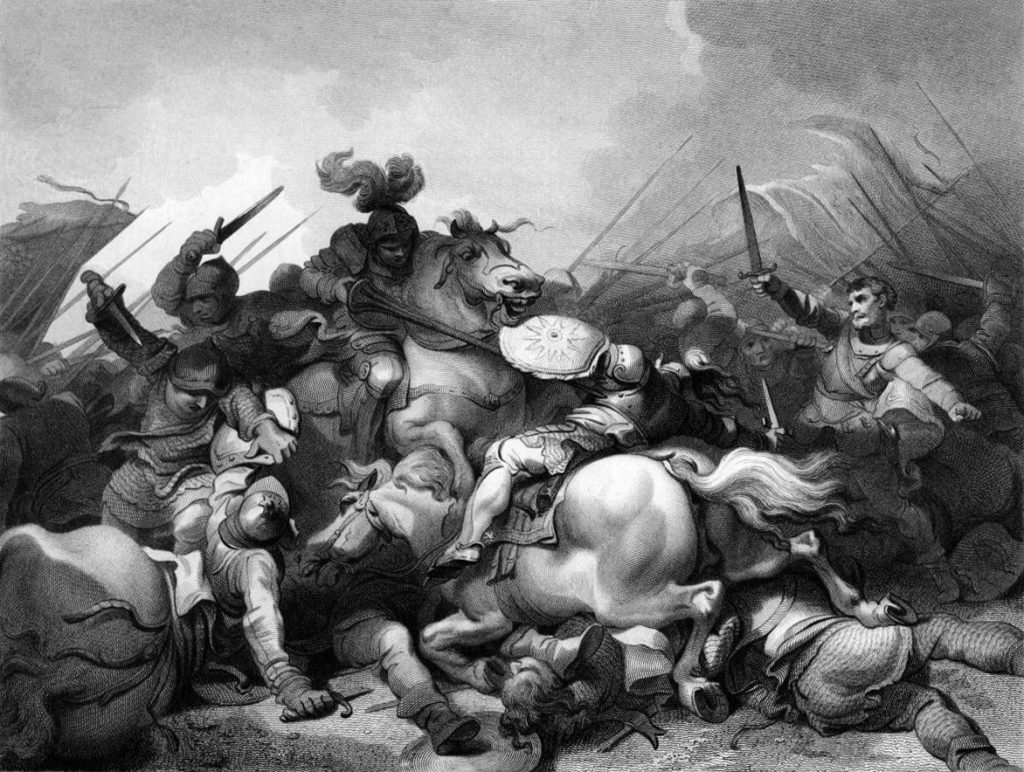
by Theodore Dalrymple
Sometimes a storm in a teacup tells us about the weather outside. This is the case with a recent row at London’s Globe Theatre, where the artistic director, actress Michelle Terry, has cast herself in the role of Richard III. This move aroused criticism because disabled actors felt that the role should have gone to one of them. That a woman should play so masculine a role, or that the director should choose herself to play the role, drew no attention.
The burden of the actors’ outrage was that Richard III was disabled and therefore ought to be played by a disabled actor. But as Shakespeare portrays him, Richard III was not disabled. (And in reality, he was scoliotic, not kyphotic). Shakespeare portrays him as an accomplished seducer and a ferocious warrior. He did not cry, “Some crutches! Some crutches! My kingdom for some crutches!” at the scene of the battle of Bosworth Field. He cried for a horse that surely would have been useless to him had he been severely handicapped.
In any case, the demand that actors should play only those parts that are somehow consonant with what we now call their “lived experience” is self-evidently absurd. If taken seriously, Richard III would have to be played by a member of the Royal Family (Prince Andrew, perhaps?), for only such a person could know or imagine what it was like to be a royal person and covet the crown. Taken to its logical conclusion, or its reductio ad absurdum, the argument would mean that the only person an actor could play was him- or herself.
Of course, a happy medium exists, though we are increasingly unable to find it. We should not expect Ophelia to be played by a 90-year-old crone. We should add difficulties in the way of an audience’s “willing suspension of disbelief,” as Coleridge put it, by casting a tall man as short or a short man as tall.
The whole silly controversy reveals to what absurdities we have sunk, thanks to identity politics and a willful misunderstanding, for the sake of personal or group advantage, of what wrongful discrimination is. Storms in teacups can be revealing.
First published in City Journal.








6 Responses
STEM, seems-to-even-me, that when the actor’s physique mismatches that of the role being played, the actor must perform with greatest talent to void audience distraction.
Truly.
Dustin Hoffman was working with legendary British actor and director Laurence Olivier, known for his Shakespearean roles and considered by many one of the greatest actors of his time.
They were both working on the 1976 film Marathon Man. Hoffman had a grueling scene coming up, where his character hadn’t slept in three days, and Hoffman told Olivier that to prepare for the scene, he too hadn’t slept for 72 hours.
“My dear boy,” replied Olivier, “why don’t you try acting?”
In the recent art-house movie on the late rock star David Bowie, Moonage Daydream, which I found a little bit of a drag, the only interesting revelation, as it were, came about halfway in when there was very brief footage of Bowie on stage in New York, of his acting in the lead role of The Elephant Man, (as I took it to be), in a scene in which I think he is in a bath perhaps. (It was a close-up shot) I had been aware of this role set in the Victorian age that he played, in late 1980, around the time John Lennon was shot. But the brief scene, in which he endeavours to speak, seemed to be very affecting, very moving. He’s nothing at least in appearance like the poor creature in the film of the same name that starred Anthony Hopkins. But a very brief scene was even enough to tell you that the man had acting talent in spades, and could convey instantly the whole tragedy of the character of The Elephant Man. I have to say that, although I walked out of Moonage Daydream about halfway through, that brief scene made my wasted trip bearable. I suppose it was a case of the actor as a man coming out of his shell. Or in Bowie’s case, his capsule. (Now it’s time to leave the capsule if you dare: Space Oddity).
I’ll just add to my larger post that if you had to be in nature exactly like the character you play in a film or on stage, then coming out of your shell just cannot happen. A versatile actor you cannot be. To act is to take on another station in life.